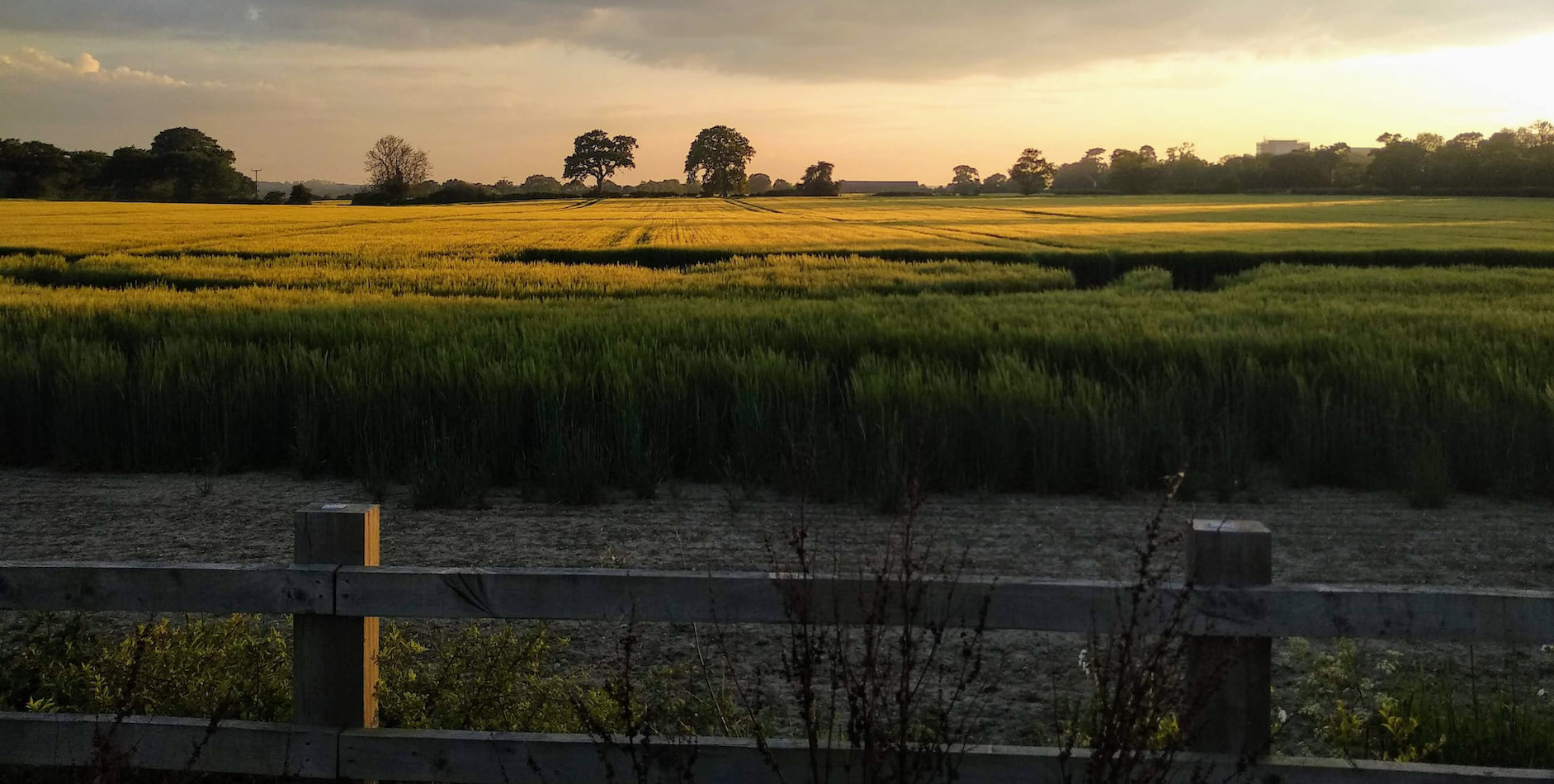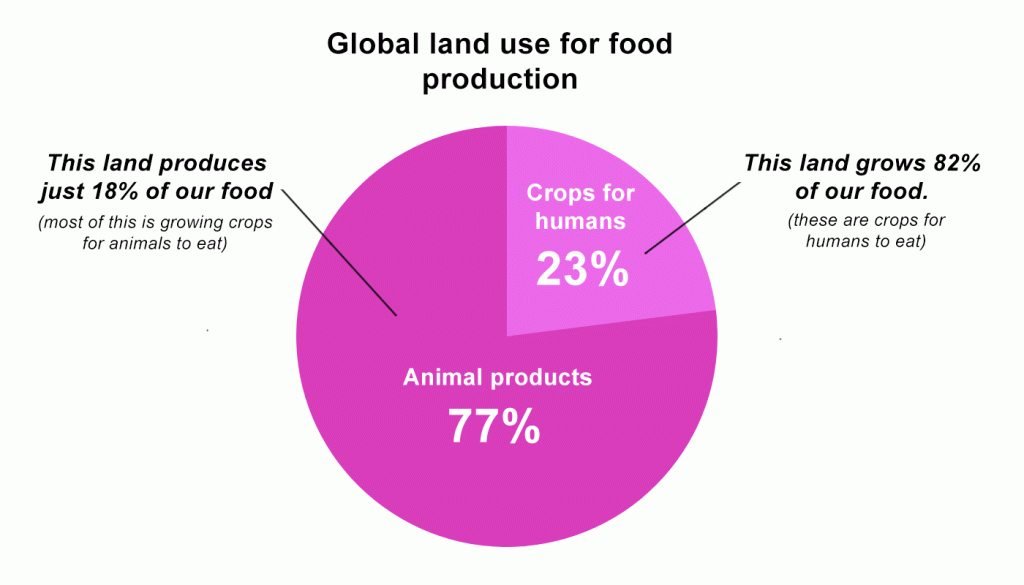The Shift to Plant-based Eating: Land Use

Food. It’s a big topic – and at times an emotive one. Food is entwined with our culture, our upbringing, our family values and rituals. There are many reasons why it might not initially seem easy to shift towards plant-based eating, but this is the direction we have to move in if solving the climate and nature crisis is what we want to do.
Why is plant-based less impactful on the planet than a diet rich in meat and dairy?
It’s not just less impactful, it’s HUGELY less impactful. Looking at how we use land is a good way to illustrate this.
Most of the land we’ve modified, we’ve converted to farmland. Farms now take up 50% of all the habitable land on Earth: they’re the main thing replacing forests and wild spaces. We all need to eat of course, but let’s step back and look at the way we are currently using land globally to provide our food.

This chart is adapted from the Global Land Use For Food Production chart, Our World In Data (1)
https://ourworldindata.org/land-use
Did you know that 77% of the world’s farmland is used to create animal products (2), but that this huge amount of land actually only accounts for 18% of our food and 37% of our protein? It takes a lot of space to create a small amount of “animal product” because we need to grow a lot of plants to feed the animals, which they then convert to meat, milk etc. Getting our food from animals in this way is a really inefficient use of land. Getting our food directly from crops we grow to eat, however, is a different story; the remaining 23% of the world’s farmland is growing plants for humans to eat and this supplies most (a whopping 82%) of our food. Eating plants is simply a far more efficient use of land (and the planet’s other stretched resources) than feeding the plants to animals and then eating them (3).
What about the other impacts?
Of course, land use is only part of the story when it comes to the impact of animal products on the planet. We also have to consider the huge amounts of freshwater used, as well as greenhouse gas emissions, run off from chemicals and sewage into our rivers and seas (eutrophication), carbon released (deforestation) and biodiversity loss. But that’s for another blog…
Farming, biodiversity and carbon capture are all competing for the same land and it is vital that we get this balance right. Whilst cows burping methane and tractors and haulage burning fossil fuels are well publicised contributors to farming’s greenhouse gas emissions, we often overlook the opportunity cost of the land not being what it could be naturally without human interference, what we might call its ‘wild’ state. We can significantly (and easily) contribute to protecting nature by shifting to a more plant-based diet. The more we shift, the more space there is on Earth to feed everyone, and for the rest of nature (or perhaps that should be ‘Nature’ with a capital N).
Supporting farmers
Farmers can easily be the heroes of this story, if they’re empowered to put soil first and focus on producing plants more than animals. It’s so important that we support them and vote for the right politics and policies to enable them to do this. By voting with our wallets and spending a little more money for food grown on diverse, mixed farms, with minimally ploughed soil and no chemical fertilisers, we are moving the dial towards storing more carbon, protecting nature and improving human health too (4).
We are not suggesting that everyone should switch to eating plant-based overnight, but rather that any shift towards plant-based is a win.
Whether you are cutting back a bit on meat, moving to a vegetarian diet, going fully vegan, or simply swapping dairy milk for oat milk, there are so many ways to start this journey. Whilst the switch to a plant-based diet can be a little challenging at first, it has been proven to be cheaper (5). Moving towards a diet rich in plant-based wholefoods could offer a change for the better for your health, as well as the health of our planet, and it might just save you a bit of money too!
Photo by Conor Hennessy on Unsplash
References
1. https://ourworldindata.org/land-use
2. 77% is conservative – other studies quote the higher figure of 83% https://www.theguardian.com/environment/2018/may/31/avoiding-meat-and-dairy-is-single-biggest-way-to-reduce-your-impact-on-earth
4. Some words taken from Matthew Shribman on the AimHi Climate Course https://www.aimhi.co/climate-course
5. https://www.ox.ac.uk/news/2021-11-11-sustainable-eating-cheaper-and-healthier-oxford-study


